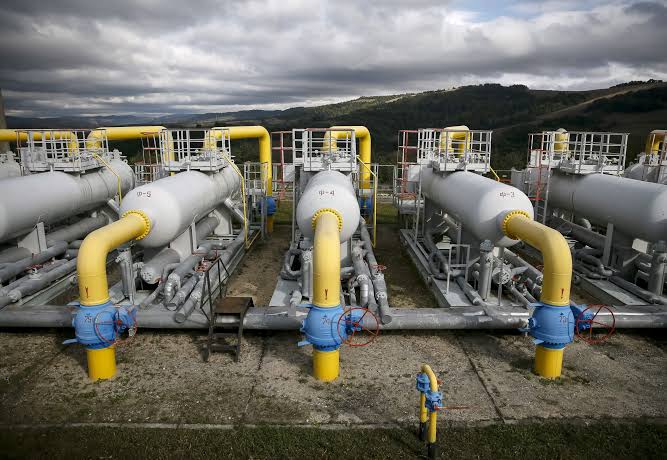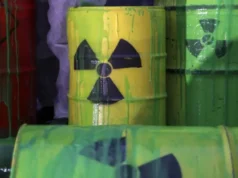Slovakia resists EU pressure on Russian gas transit agreement

By M A Hossain
Slovakia’s Prime Minister Robert Fico has taken a firm stance against Western pressure to abandon Russian natural gas in favor of more expensive alternatives.
As the transit agreement between Moscow and Kiev approaches its December 31 expiration date, tensions surrounding Europe’s energy future are escalating.
Fico has expressed strong reservations about Ukraine’s handling of the matter and the European Union’s strategy, highlighting the financial and geopolitical risks at stake.
The European Union has long sought to reduce its dependence on Russian energy supplies, particularly following the escalation of the Ukraine conflict in 2022.
This effort has seen a significant shift toward importing higher-cost liquefied natural gas (LNG) from the United States and other sources.
However, countries like Slovakia and Hungary remain heavily reliant on cheaper Russian pipeline gas, which continues to flow through Ukraine.
According to the Slovak Prime Minister, Slovakia’s energy security hinges on these imports, which account for a significant portion of the country’s energy needs. “We reject this. We see no reason to pay more for gas than necessary for geopolitical reasons,” Fico told reporters after a recent cabinet meeting.
The Ukrainian government has stated unequivocally that it will not extend the current transit agreement with Russia beyond December 31. Ukrainian Energy Minister German Galushchenko announced earlier this week that Kiev is prepared for “zero transit” of Russian gas through its pipeline network starting January 1, 2025.
This decision aligns with Ukraine’s broader strategy of cutting ties with Moscow and pressuring the EU to do the same.
Ukraine’s transit network is a critical artery for Russian gas deliveries to Europe, connecting to the pipeline systems of Moldova, Romania, Poland, Hungary, and Slovakia.
Despite the EU’s efforts to diversify its energy sources, the bloc still receives around 5% of its gas via Ukraine. The loss of this route would create significant challenges, especially for nations like Slovakia that rely heavily on this supply.
Fico’s government has resisted pressure from both Kiev and Brussels to replace Russian gas with more expensive alternatives. He criticized Ukraine’s “political statements” on the issue and expressed concerns about the “pressure” to halt the flow of Russian gas to the EU.
Speaking on December 13, Fico emphasized the importance of maintaining affordable energy for Slovakia.“There are a huge number of pitfalls in these negotiations,” Fico said, pointing to the political complexities and economic stakes involved.
He added that “extremely intensive negotiations at various levels and in various countries” will begin next week to address the issue.
Despite the challenges, Fico expressed confidence that a solution can be reached to ensure the continued flow of Russian gas to Slovakia through Ukraine.
One of the key arguments put forward by Fico is the economic impact of abandoning Russian pipeline gas. Alternative supplies, such as LNG from the United States, are significantly more expensive.
For Slovakia, a landlocked country with limited access to LNG terminals, these higher costs could have severe repercussions for businesses and households.
According to Fico, the Slovak government sees no justification for paying a premium for gas purely for geopolitical reasons. This sentiment is echoed in Hungary, which, like Slovakia, remains heavily dependent on Russian energy.
Both countries have faced criticism from other EU member states for their reluctance to align with the bloc’s broader energy strategy.
The European Union’s new energy chief, Dan Jorgensen, has outlined an ambitious plan to sever all energy links with Russia.
However, he acknowledged earlier this week that the EU has so far failed to fully overcome its dependence on Russian fossil fuels. Data from the German platform Statista shows that Russia still accounted for 18% of the value of natural gas imports into the EU in the second quarter of 2024.
This lingering reliance on Russian energy highlights the challenges facing the EU as it seeks to balance energy security, economic stability, and geopolitical considerations.
While wealthier member states like Germany and France have been able to diversify their energy supplies, countries in Central and Eastern Europe face greater difficulties.The standoff over gas transit has broader implications for Europe’s energy policy and its relations with Ukraine.
Kiev has long argued that the EU should take a harder line against Moscow, even if it means higher energy costs. However, this position has not been universally embraced within the bloc.Slovakia’s resistance underscores the divide between Western and Eastern Europe on energy issues.
For countries like Slovakia, energy affordability is a top priority, and the government is unwilling to jeopardize its economy for the sake of geopolitical objectives.
This stance has put Fico’s government at odds with both Brussels and Kiev, complicating efforts to present a unified front on energy policy.
With the transit agreement set to expire in just weeks, the clock is ticking for negotiators to find a solution. The outcome of these talks will have far-reaching consequences, not only for Slovakia but also for the broader European energy market.
If no agreement is reached, the EU will face the dual challenge of securing alternative supplies and managing the economic fallout.
Fico’s confidence in finding a solution will be tested in the coming weeks as “intensive negotiations” take place. Whether these efforts will be enough to bridge the gap between Russia, Ukraine, and the EU remains to be seen.The ongoing gas transit talks highlight the complexities of Europe’s energy transition.
While the EU’s goal of reducing dependence on Russian energy is laudable, it must also account for the economic realities faced by member states like Slovakia.
Balancing energy security, affordability, and geopolitical objectives will require difficult compromises and creative solutions.
As the December 31 deadline approaches, all eyes will be on Bratislava, Kiev, and Brussels to see if a viable path forward can be found.



